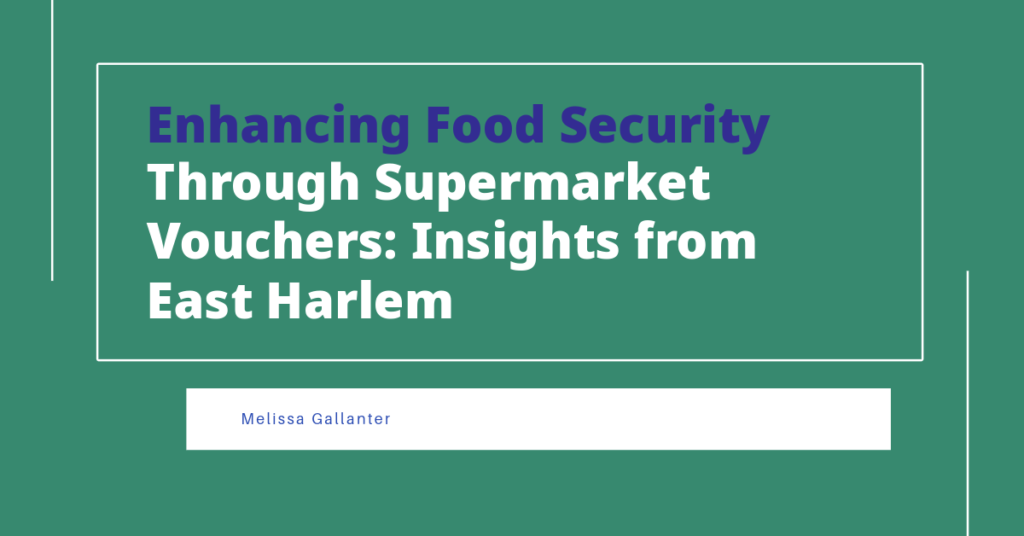
A two-month supermarket voucher program in East Harlem improved the food-buying behaviors of low-income minority families, highlighting the potential of such initiatives to enhance food security and nutrition.
Food insecurity remains a major issue in many urban communities, particularly affecting low-income, minority families. A recent study published in the July issue of the Journal of Public Health Management and Practice looked at the impact of a two-month supermarket voucher program on the food-buying behaviors of a population of mostly minority families in East Harlem, New York.
research summary
Our study aimed to evaluate how these families used their supermarket vouchers, focusing on the types of food they purchased. The program involved 113 people, each of whom received a monthly voucher worth $70 for two months. The initiative was designed to provide financial support and increase nutritious food choices.
Key Findings Voucher Use and Spending Patterns: Participants primarily spent vouchers on meat, fish, poultry, and eggs (29.7% of total expenditures), followed by fruits and vegetables (15.9%) and cereals and bakery products (15.1%). This spending pattern indicates that reduced economic barriers favor protein-rich foods and fresh foods. Demographic Effects: Foreign-born participants were more likely to spend vouchers on fruits, vegetables, and dairy products compared to U.S.-born participants. This difference suggests that cultural background and dietary preferences may influence food purchasing decisions. Program Acceptance and Implementation: The program was well-received, and participants stated that the vouchers allowed them to purchase foods that they would not otherwise be able to afford. The empowerment aspect of the program highlights its potential to increase food security and dignity for low-income households. Implementation required minimal resources, highlighting the feasibility of such programs in resource-limited settings.Implications for policy and practice: Our findings suggest that supermarket voucher programs can effectively increase access to nutritious foods with minimal resources. Future programs should consider offering open-ended vouchers to accommodate diverse dietary needs and preferences. Enhancements for future implementation include improved communication materials and regular follow-up with participants to ensure program adherence and minimize loss to follow-up. Conclusion

Read the JPHMP article
The East Harlem supermarket voucher program demonstrated that targeted financial assistance can improve the food-buying behaviors of low-income minority families. By providing the means to purchase desired, but often unaffordable, foods, the program promoted improved nutritional status and overall health. Future research should continue to explore the long-term benefits of sustained voucher distribution and the impact of demographic characteristics on food-buying behaviors.
For more detailed findings and recommendations, read the article, “Food Shopping Behaviors of Predominantly Minority Families in an Urban Supermarket Voucher Pilot Program,” in the current issue of the Journal of Public Health Management and Practice.
Author Profile
Melissa Galanter Melissa Galanter is a public health researcher specializing in community-based nutrition interventions and food security. Melissa is a registered dietitian with experience in food policy research, medical nutrition therapy, and the implementation and management of grant-funded food access programs. Melissa is currently a Master of Public Health (MPH) candidate at the City University of New York (CUNY) School of Public Health and Health Policy. Series Navigation << Changes in Nutrition and Physical Activity Post-COVID-19 in Illinois Early Childhood Care and Education Settings
Source link


